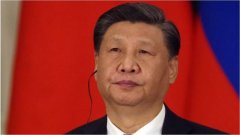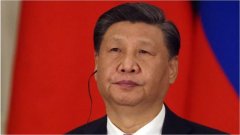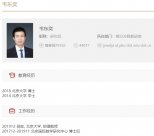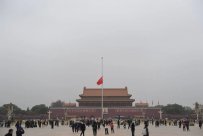The topic of the power structure of the top leadership of the Chinese Communist Party has recently attracted attention again in the international media.
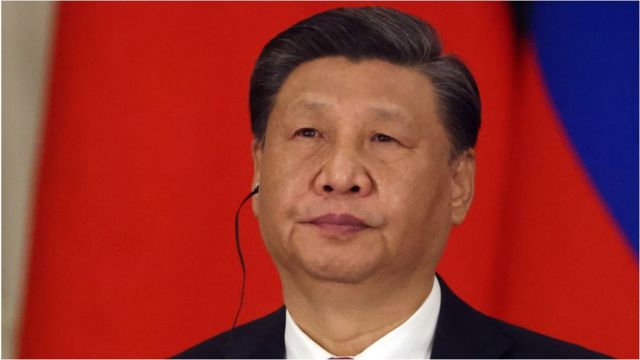
The news that triggered the topic was a special seminar on promoting high-quality financial development held at the Central Party School from January 16 to 19. The participants were all major leading cadres at the provincial and ministerial levels, that is, the provincial party committee secretaries and provincial governors. Chinese officials reiterated at the opening ceremony that financial supervision must be "thorny" and angular; and the first priority for the development of finance with Chinese characteristics is to "uphold the centralized and unified leadership of the Party Central Committee on financial work."
Some overseas commentators noticed that other members of the Politburo Standing Committee and Vice President Han Zheng attended the opening ceremony, except for Prime Minister Li Qiang, who ranked second in the Politburo. Li Qiang was attending the World Economic Forum in Davos, Switzerland. The Nihon Keizai Shimbun reported that it was unusual for a seminar focusing on finance to be held during the visit of Li Qiang, who is responsible for economics and finance.
"Nikkei" and other media also specifically mentioned that when the seminar concluded on the 19th, Cai Qi, member of the Standing Committee of the Political Bureau and Secretary of the Central Secretariat, presided over and gave a concluding speech. These reports also cited other examples and concluded that Cai Qi was competing with Li Qiang and that the balance of power was tilted towards Cai Qi.
Looking through past records, we found that the Chinese Communist Party has held seminars for provincial and ministerial-level leading cadres in January and February every year for many years. This activity has been held almost every year since 1999. Since the Chinese government took over in 2012, he has also spoken at the opening ceremonies of all special seminars (no classes were held in 2013 and early 2020, and the government sometimes held special seminars in other months). The second-ranking figure in the Politburo Standing Committee is often The host of the opening ceremony was previously Li Keqiang, and in 2023 it will be Li Qiang.
This year's seminar was held while Li Qiang was abroad, which inevitably aroused discussion and speculation. However, this should not be a deliberate move by the CCP. After all, Li Qiang just made his public appearance as the director of the Central Financial Commission in November last year. The CCP has no reason to quickly reduce Li Qiang’s authority in the financial field and replace it with others. This seminar was held during Li Qiang’s foreign visit. The specific reason is unknown, but it may be due to scheduling. The day after the special seminar ended, the provincial-level "two sessions" were held intensively on January 20, and many senior officials had limited room to move their schedules.
As for Cai Qi presiding over the closing ceremony and delivering a concluding speech, there is no need to over-interpret it. In the past many years, the closing ceremony of special seminars has been hosted and delivered by the Politburo Standing Committee member in charge of party affairs. Wang Huning has played this role many times before.
Regarding the topic of the division of labor among the top management of the CCP, a more noteworthy phenomenon is that since the 20th National Congress of the Communist Party of China, the Chinese officialdom has been in a detached position. What role they play depends mainly on their respective division of labor.
Li Qiang is in charge of the State Council, responsible for economic, financial, and social development. He also serves as vice chairman of the Central National Security Commission and deputy director of the Central Commission for Comprehensive Deepening Reforms. As prime minister, he also has to participate in many foreign affairs activities, which is a heavy responsibility.
Cai Qi, who is in charge of party affairs and ideology, is not only the secretary of the Secretariat of the Central Committee, but also the director of the General Office of the Central Committee. Elevating the rank of the director of the Central Office to that of a member of the Politburo Standing Committee is another new phenomenon after the 20th National Congress of the Communist Party of China. It highlights the increased status and importance of the party affairs system. In the past many years, the director of the Central Office was a non-political person. Serves as a member of the Standing Committee of the Bureau. Taking charge of the Secretariat and the Central Office means that all documents submitted to the Politburo and the General Secretary must first go through Cai Qi. Cai Qi is also the leader of the Central Leading Group for Study and Implementation of "Xi Thought" Theme Education, Deputy Director of the Deep Reform Commission, and many other title. He is the member of the Standing Committee who is closest to the work of the General Secretary. When Chinese officials conduct inspections and visits to various places, he always accompanies him.
Other members of the Politburo Standing Committee: Zhao Leji, Wang Huning, Ding Xuexiang, and Li Xi also have their own division of labor. Zhao Leji is in charge of the National People's Congress and concurrently serves as vice chairman of the National Security Commission of the Central Committee; Wang Huning is in charge of the United Front and Taiwan work, and also serves as deputy director of the Shenzhen Reform Commission. Ding Xuexiang is the Executive Vice Prime Minister and the leader of the Hong Kong and Macao Work Leading Group, and may hold important positions in important institutions whose members have not been disclosed, such as the Central Science and Technology Commission. Li Xi also serves as the secretary of the Central Commission for Discipline Inspection. In 2023, the CCP's "tiger crackdown" was fierce. As many as 87 central management cadres were registered throughout the year, significantly exceeding the previous annual average. This is the result of Li Xi's work.
Among the Standing Committee, Li Qiang and Cai Qi are the two main figures in charge of government affairs and party affairs respectively as the general secretary. This structure was determined after the 20th National Congress in October last year. Of course, with the comprehensive strengthening of the Party's leadership and the "Party leading everything" being fully implemented after the 20th National Congress, the weight of the Party affairs system in the CCP's decision-making levels has increased; the weight of government affairs, that is, the State Council system has increased compared with the past. Shrinkage is also an indisputable fact.
The changes in the status of the State Council system will reveal more obvious signals. For example, when the chief executives of Hong Kong and Macao went to Beijing to report on their work in December last year, they no longer reported to Prime Minister Li Qiang alone, but only reported to Chinese officials. Li Qiang, Cai Qi and others only "attended meetings."
In the real environment at the top, everyone is probably well aware of their respective roles and respect their boundaries. Some scholars have previously described that Li and Tsai "shared worries but not powers" for the General Secretary in their respective areas of responsibility, and that all party and government power is still in the hands of the "core" Chinese officials.
Looking back at the special seminar for leading provincial and ministerial leaders on January 16 that Li Qiang did not attend, the signal it sent was: as long as Chinese officials attend the opening ceremony and speak, the meeting is important enough, and others will only work according to the division of labor.

